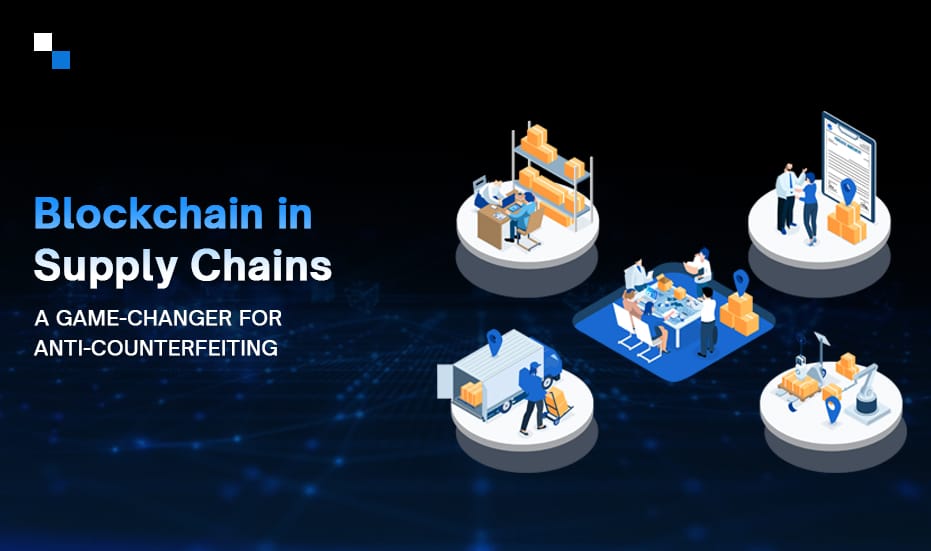The majority of industry verticals couldn’t escape from the new-age technology impact, Blockchain. As far as healthcare is concerned, the demand for Blockchain has increased at incredible speed. According to Statista, 55 percent of healthcare applications will adopt Blockchain for commercial deployment by 2025. The statistic defines how the landscape of the healthcare industry is experiencing innovation.
Today, several competencies in the industry are leveraging the modern and novel computer technologies having Blockchain. Healthcare providers are now well aware that this breakthrough technology can address the industry challenges and plays a critical role in transforming the sector. The blog has revealed how Blockchain healthcare solutions can enhance the quality of healthcare facilities working on the major industry issues.

How Blockchain Healthcare Applications Combat the Industry’s Challenges
The following are the challenges the healthcare industry faces and how Blockchain can be a savior:
Challenge 1: Interoperability
Accessing and sharing health data has always been challenging. Besides, no control or ownership over the medical data doesn’t allow patients to share the information among different hospitals. Apart from this, the lack of trust, authenticity, and accountability also worsens the experience. Secured interoperability can be expected with the breakthrough technology, Blockchain.
Solution: Blockchain is an incredible alternative to the existing isolated process used for storing and collecting patient data. Blockchain healthcare solutions storing the data shared between hospitals, patients, and other healthcare parties involved in the network are highly secured, immutable, and traceable, which solves the authenticity problem. Blockchain resolves the issue of patient identification, as the data stored on this platform can easily be pseudonymized. The use of IoT applications and data collected from wearable devices, also helps resolve the interoperability challenges in healthcare with Blockchain.
Challenge 2: Inefficient Management of Clinical Trial Data
Everyone is well aware of how crucial the clinical trial data is. The medical profile and history of patients are collected, analyzed, and curated in order to understand the disease and make new discoveries. However, managing clinical trial data is always challenging. It usually requires a long commitment and heavy investment, so there is always the risk of final results getting altered or tampered with. The clinical trial research industry has implemented several solutions to address the issue, but many of them haven’t fully succeeded excluding Blockchain.
Solution: Blockchain is one such promising yet disruptive technology that holds the capability to reshape the healthcare industry and change the way it manages clinical trial data. The trial data to get affected is impossible with Blockchain healthcare applications or platforms that offer the immutability feature.
Challenge 3: Data Corruption or Tampering
The healthcare sector also lacks universally recognized patient identifiers on a global scale. Although the industry uses the solutions EHR, unfortunately, it can’t completely solve the issue and sometimes, result in mismatching of patient records.
Solution: Blockchain is a distributed ledger technology that has the potential to generate secure, tamper-proof, and consistent medical records which are impossible to corrupt. Such security is possible because every interaction made in the system goes through an audit trail that everyone can see.
Challenge 4: Insurance Fraud
According to a report, in 2018, $3.6 trillion was spent on healthcare in the US, representing billions in health insurance claims. No doubt, many of these claims are fraudulent. Insurance fraud is undoubtedly a big problem in the healthcare industry on a global scale.
Solution: The solution to insurance fraud is the Blockchain that can prevent false claims made by patients or providers. It stores all the transactions in a secure way that makes them traceable.
Challenge 5: Drug Counterfeiting
Counterfeit drugs are a global problem. Combating this issue is necessary not only to prevent financial losses but more importantly to avoid changing the original composition and product ingredients that can affect a patient’s health.
Solution: Blockchain is the ideal solution to combat the problem of drug counterfeiting. The technology has the potential to solve the issue as it offers a transparent, shared database that provides an ease to manufacturers and pharmaceutical suppliers to track and verify the origin of the product. The Drug Supply Chain Security Act (DSCSA) was effective in 2024 and has already highlighted that digital traceability and tracking of drugs will be required in the near future.
Final Words
When Bitcoin or cryptocurrency was first introduced, the questions regarding what Blockchain is and how it works hit everyone’s mind. Later on, the increased awareness in several industries has led many to try their hands and resolve the challenges they face. Talking about the healthcare sector, Blockchain has the potential to transform the industry by providing several benefits, including transparency, security, and integrity. Although the Blockchain healthcare solutions adoption at a dominant level is likely years away, the discussion about the technology always excites everyone. If you are interested in leveraging the technology, reach out to Antier- a leading Blockchain healthcare applications development company. We are renowned experts in the crypto space that work closely on your projects in order to deliver the best solution.





